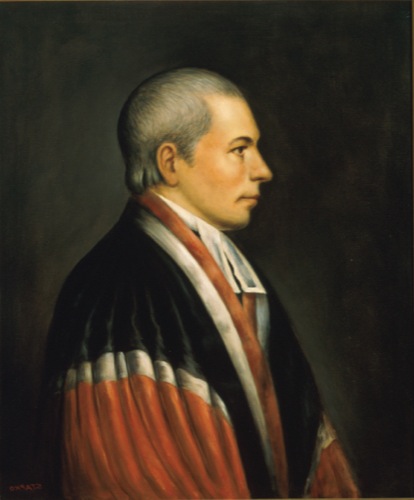Get Today in Masonic History into your Inbox. Sign up today for one of our email lists!
Need an article for your Trestleboard/Newsletter see our Use Policy
William Paterson is Born

Today in Masonic History William Paterson is born in 1745.
William Paterson was an Irish born American politician and jurist.
Paterson was born on December 24th, 1745 in County Antrim, which is now in Northern Ireland At the age of two his family moved to the American colonies. He attended the College of New Jersey, now Princeton University, at the age of 14. After graduating he studied law with a local attorney. In 1768, he passed the bar. Staying connected to his alma mater, he helped Aaron Burr create the Cliosophic Society at Princeton. The society is a political, literary and debating society.
In 1776, Paterson was selected as the delegate from Somerset County to for the first three congresses of New Jersey. In 1776 he recorded the first constitution of New Jersey. From 1776 to 1783, he served as the Attorney General of New Jersey. During this time he established himself as one of the state's most prominent lawyers.
In 1787, Paterson was sent as a delegate to the Philadelphia Constitutional Convention. There he proposed a unicameral legislative body, similar to New Jersey's. This meant a single legislative body identical to our modern Senate where all states had equal representation. At the convention the Great Compromise was reached and the delegates agreed to two houses of Congress, the Senate as Paterson proposed and a House where representation was based on population.
In 1789, Paterson became one of the first United States Senators from New Jersey. During his short time in the Senate he helped write and pass the Judiciary Act of 1789 establishing the Federal Court system, including the Supreme Court. He resigned from the Senate in 1790 to become Governor of the State of New Jersey. He served as Governor until 1793. He focused his term as Governor on restructuring the laws of New Jersey getting rid of the English code which had been used in New Jersey since before the revolution.
In February of 1793, George Washington nominated Paterson to be an associate justice on the United States Supreme Court, a body Paterson himself had helped create and establish the policies for. Washington retracted the nomination the following day when it was discovered it violated the new laws. Paterson was still within his elected term as a United States Senator despite having resigned. Just a month later, Washington nominated him again, and he was unanimously confirmed as an associate justice.
As a member of the United States Supreme Court, one of the first cases Paterson heard was on the Whiskey Rebellion, a case where individuals were being tried for treason. In the case the court had to determine the constitutionality of the federal court sending in militia to quell a civil disturbance.
In 1801, Paterson was made a fellow of the American Academy of Arts and Sciences in 1801.
Paterson passed away on September 9th, 1806 from complications arising from a previous carriage accident.
Paterson was a member of Trenton Lodge No. 5 in Pennington, New Jersey.
This article provided by Brother Eric C. Steele.

